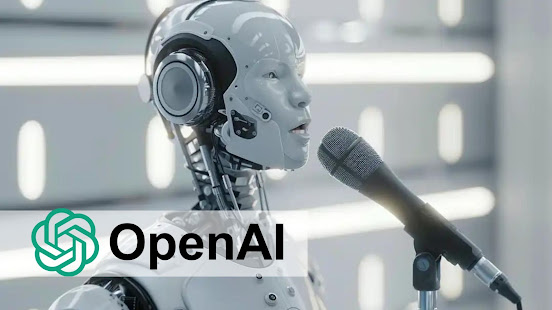Unveiling OpenAI's Voice Engine: Revolutionizing Human-Machine Interaction
Introduction
In an era where human-machine interaction is becoming increasingly integral to our daily lives, the quality of voice technology plays a pivotal role in shaping user experiences. OpenAI, a leader in artificial intelligence research, has taken a monumental step forward with the introduction of its Voice Engine. This innovative technology promises to revolutionize how we interact with machines, offering unprecedented levels of realism, versatility, and adaptability. In this comprehensive guide, we'll delve into the intricacies of OpenAI's Voice Engine, exploring its features, capabilities, and potential impact on various industries and applications.
Understanding OpenAI's Voice Engine
OpenAI's Voice Engine is a state-of-the-art text-to-speech (TTS) system that generates high-quality, natural-sounding speech from written text. Powered by advanced deep learning algorithms and trained on vast amounts of audio data, the Voice Engine is capable of producing human-like speech with remarkable clarity, expressiveness, and fluency. Unlike traditional TTS systems, which often sound robotic and unnatural, OpenAI's Voice Engine delivers a seamless and immersive auditory experience that closely resembles human speech patterns and intonations.
Introducing SFWPExperts combines cutting-edge WordPress website design with the latest artificial intelligence (AI) advancements to deliver innovative and intelligent online web design solutions. With a team of skilled designers and AI specialists, we create websites that are visually stunning but also smart and intuitive.
Key Features and Capabilities
- Natural Voice Synthesis: One of the standout features of OpenAI's Voice Engine is its ability to produce natural-sounding speech that is indistinguishable from human speech. By leveraging deep neural networks and sophisticated language models, the Voice Engine can capture subtle nuances in pronunciation, cadence, and tone, resulting in highly realistic and expressive audio output.
- Customizable Voices: OpenAI's Voice Engine offers a wide range of customizable voices to suit various contexts and preferences. Users can choose from different genders, accents, and speaking styles, allowing for greater personalization and flexibility in voice applications. Whether you're creating a virtual assistant, narration for audiobooks, or voiceovers for multimedia content, the Voice Engine ensures that you can find the perfect voice to convey your message effectively.
- Multi-Lingual Support: In today's globalized world, multilingualism is increasingly important for reaching diverse audiences. OpenAI's Voice Engine supports multiple languages and accents, enabling users to create audio content in different languages with the same level of quality and authenticity. This multi-lingual capability opens up new possibilities for localization, internationalization, and global communication across borders and cultures.
- Real-Time Synthesis: With its low latency and high throughput, OpenAI's Voice Engine is capable of real-time speech synthesis, making it suitable for interactive applications such as virtual assistants, voice-enabled devices, and live broadcasting. Whether responding to user queries, providing navigation instructions, or delivering live commentary, the Voice Engine ensures smooth and responsive audio output with minimal delay.
- Adaptability and Fine-Tuning: OpenAI's Voice Engine offers extensive customization options and fine-tuning parameters, allowing users to adjust various aspects of the synthesized speech to achieve the desired results. From controlling pitch and speed to modulating emotions and emphasis, the Voice Engine empowers users to tailor the audio output to specific contexts, audiences, and use cases, ensuring maximum impact and engagement.
Applications and Use Cases
- Virtual Assistants: OpenAI's Voice Engine can power virtual assistants and chatbots, enabling natural and conversational interactions with users. Whether scheduling appointments, answering questions, or providing recommendations, virtual assistants equipped with the Voice Engine can deliver personalized and engaging experiences that enhance user satisfaction and productivity.
- Accessibility Solutions: The Voice Engine has significant implications for accessibility, allowing individuals with visual impairments or disabilities to access digital content more effectively. By converting written text into spoken words, the Voice Engine enables screen readers, text-to-speech applications, and other assistive technologies to make digital information more accessible and inclusive for all users.
Read More: Unveiling OpenAI's Voice Engine: Revolutionizing Human-Machine Interaction
Read More Articles:
- Exploring Screen AI: Revolutionizing Visual Recognition Technology
- Introducing Studio By WordPress: Revolutionizing Website Building for Creatives
- Google Advertising: How Much Does Google Ads Cost?
- Unleashing the Power of Vertex AI Studio: A Comprehensive Guide
- Exploring The Concept Of Personal Branding: A Comprehensive Guide
Visit Site: Web Design Company




Comments
Post a Comment